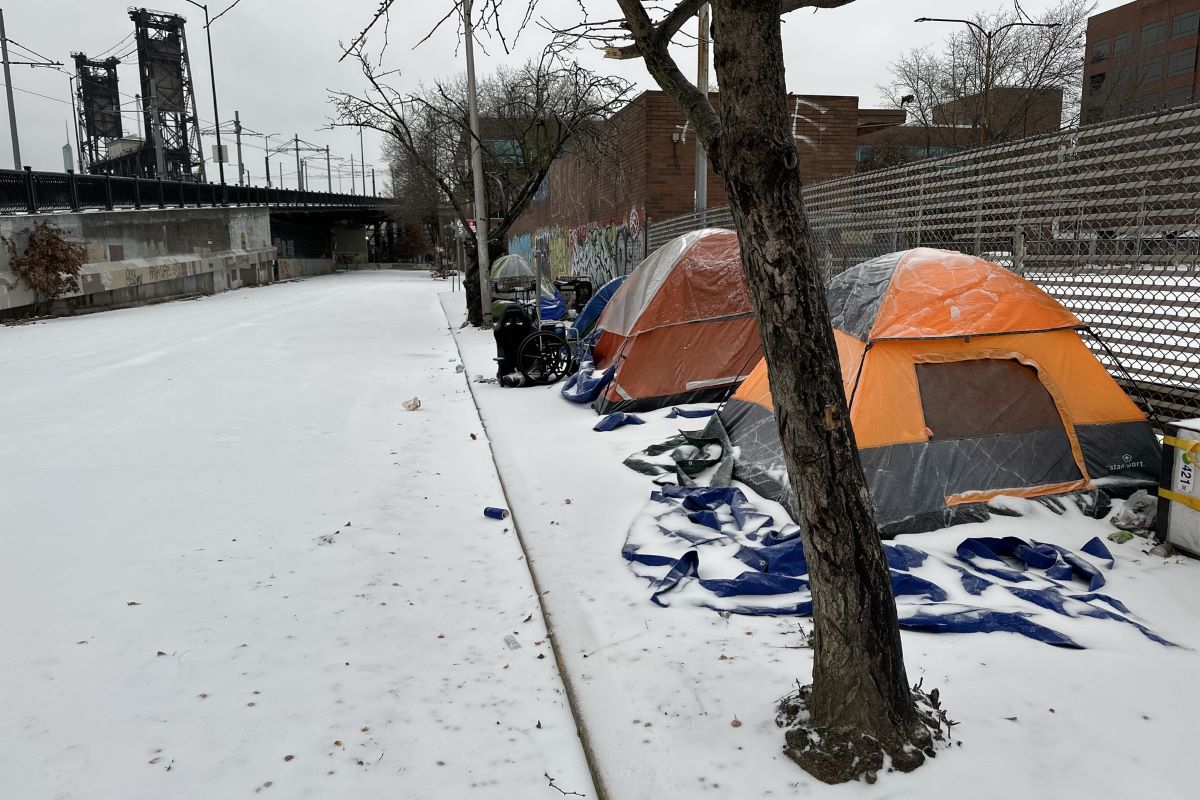Homelessness is exploding all over the United States of America, and it will continue this way until we start investigating the facts. You’re reading this right now because you see it, too.
You see the unsheltered homeless people wandering through the subway stations, slumbering in spaces utterly unfit for human habitation. You see the signs at intersections where veterans silently request hand warmers and water bottles.
Perhaps you even see the signs of homelessness a whole lot closer to home by way of a pending eviction notice, a recent layoff, or a sudden death in the family that’s left you laden with debt, anxiety, or despair.
We all want to do something to combat homelessness, but the problem is too complex and difficult to solve, or so we’re told. In reality, however, we could solve, prevent, and ultimately abandon homelessness, leaving it behind us like a history lesson.
Imagine woefully believing that we can’t solve homelessness. Imagine having an inaccurate understanding of the root of the problem. Imagine investing hundreds of millions, or even billions of dollars in perpetuating the cycle of homelessness by leaning in on the least effective solutions possible.
This is happening in America today, and its why fact-checking is essential when it comes to homelessness news.
Facing Facts and Debunking Popular Myths: These are the Keys to Ending the Homeless Crisis
The hardship of homelessness need not exist in these modern times. We are surrounded by technology that previous generations could not have fathomed. We are standing on a wealth of riches and resources, although these things are only truly accessible to an elite few.
We have abundant food and land, to the point where humanity has literally reshaped the entire planet and reclaimed one-third of Earth’s forests so our bellies would never be empty. The cornucopia flows full.
So, why are so many people still living outside when our houses are surging with power, electricity, running water, Wi-Fi, and modern amenities?
Why are so many schoolchildren being ushered into the foster care system simply because their parents are alive but cannot afford adequate housing?
Why are our veterans dying on the sidewalks of the country they once risked their lives to defend?
Why can’t the average schoolteacher afford the median mortgage rate?
Why are our grandmothers pitching tents outside the condos they almost owned?
What is the main component fueling the homeless crisis? Is it mental health or drug addiction? Is it corporate greed or wealth inequality?
Surprisingly, when we truly stop to examine these things, the answer is no. Before getting to the factors above, we must review the information and ask a vital question … Why is it wrong?
Misinformation is Causing Us to Promote the Wrong Solutions to Homelessness
Here are some facts about homelessness that explain why it hasn’t been solved yet. This crisis is rooted mainly in what we believe, what we perceive, and, quite frankly, which words and thoughts are being used to placate us into accepting homelessness as some inevitable reality. For example:
- Fact 1: Most people assess homelessness through outside sources such as mainstream media or what they see when they walk outside. According to an Invisible People survey, approximately 79% of people get their homelessness news this way.
- Fact 2: The mainstream media’s ludicrous misrepresentation of homeless people is entirely unrealistic, and the narrative runs counter to the goal of ending homelessness. On top of that, when you judge homeless people based on those you see, you are basing your opinion of an entire group of people on a small but highly visible minority. To put things into perspective, only 4 out of 10 unhoused civilians live outside where you would see them. Most of our unhoused neighbors live in temporary warming shelters or crash on a relative’s couch.
- Fact 3: When armed with misinformation about the true leading causes of homelessness, voters often support expensive, ineffective legislation.
- Fact 4: Homelessness inevitably increases when ineffective legislation (such as anti-camping ordinances) is given precedence over programs with a proven track record for success (such as Housing First). Meanwhile, funding allocated to reduce homelessness winds up in the wrong places, often the pockets of crafty politicians or police teams tasked with arresting homeless people and throwing out their belongings.
- Fact 5: Homelessness just recently increased by a dire 12% and is now the highest it has been in recorded American history.
What are we doing in response to this massive and rapid influx of homelessness all over the nation?
Well, we are drafting even more laws that cost billions of dollars and ultimately push homeless people into expensive prison systems, mental institutions, and concentration camps. What are we not doing? We are not building an adequate supply of affordable housing.
Why does this matter so much? Because the lack of affordable housing is, overwhelmingly, by a landslide, the leading cause of homelessness. From this standpoint, it’s easy to see how misinformation that attributes homelessness to personal failures as opposed to systemic issues is an advocate’s biggest enemy.
There’s Good News to Report About Homelessness After All: The Narrative is Slowly Changing
Misinformation has long fueled the flames of anti-homeless hatred and pushed the general public into spaces where they are bound to vote against their best interests because they are misinformed. However, the truth is slowly leaking out in this digital age, one painstaking gigabyte at a time.
Be the first to pass on the true message of homelessness to your friends and family by signing up for our newsletter and learning how to identify misinformation and fight against it.












